Here you may view our current press releases. We always appreciate getting a copy of your publication for our records.
Press distribution list
Receive our latest news regularly by email. Register now.
Here you may view our current press releases. We always appreciate getting a copy of your publication for our records.
Receive our latest news regularly by email. Register now.

Improving healthcare, relieving the burden on medical professionals and advancing research in Germany: These are the goals of the three-year research project “FHIR-Starter” starting in February 2025. The project focuses on the development of a software service that is able to automatically structure medical data using large language models (LLMs). To this end, the Fraunhofer Institute for Experimental Software Engineering IESE is cooperating with Prof. Sylvia Thun's working group at the Berlin Institute for Health Research at Charité and the AI company Insiders Technologies from Kaiserslautern. Fraunhofer IESE is the consortium leader. The project is being funded by the Federal Ministry for Economic Affairs and Energy as part of the “Generative AI for SMEs” innovation competition with 1.64 million euros. Translated with DeepL.com (free version)
more info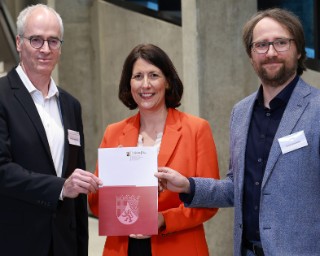
Kaiserslautern/Landau, 12.02.2025 - Artificial intelligence can unlock optimization potential in production - for example in production planning, quality control or in terms of resource efficiency. Nevertheless, small and medium-sized enterprises (SMEs) in particular are reluctant to introduce it. The Chair of Production Engineering and Industrial Organization (FBK) at RPTU, together with the Fraunhofer Institutes for Experimental Software Engineering IESE and Industrial Mathematics ITWM and the German Research Center for Artificial Intelligence (DFKI), wants to change this: The researchers are now looking for manufacturing SMEs for an AI potential analysis including the implementation of selected use cases.
more info
With the ongoing migration to the cloud, the need for corresponding security solutions is also increasing. Fraunhofer IESE has stood for IT security and data sovereignty for digital ecosystems for over 20 years. In cooperation with Worms University of Applied Sciences, the “Secure Cloud Computing” learning lab has now been launched, which not only offers comprehensive know-how for cloud DevOps, cloud users and middle management of cloud solution providers. It is also characterized by a unique combination of learning opportunities, cloud infrastructure, defense and attack labs.
more info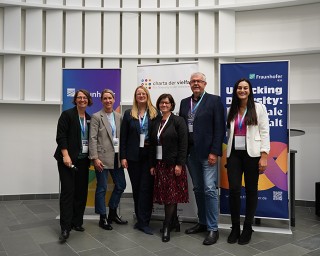
The region's first Diversity Summit took place at Fraunhofer IESE on November 25, 2024. Under the motto “Unlocking Diversity: Harnessing the potential of diversity”, around 70 participants met in the late afternoon for an intensive exchange of ideas. Andrea Bergsträßer, Director of Nursing at Westpfalz-Kinikum GmbH, Prof. Dieter Rombach, the founding father of Fraunhofer IESE, Esther Richter, Diversity, Equity and Inclusion Officer at BASF SE and Saskia Bugera, Commercial Director of 1. FC Kaiserslautern, discussed how diversity can be lived and how it can make companies and organizations more successful. Inclusion athlete Abdul Dogan also shared his experiences as a wheelchair user with the participants. The highlight of the event was the signing of the Diversity Charter, whereby companies and organizations reaffirmed their commitment to a diverse and inclusive corporate culture.
more info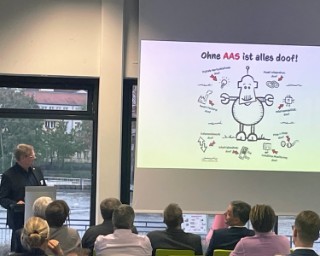
Yesterday, the official opening of Fraunhofer IESE's BaSys Roadshow took place on the HTW campus in Berlin, followed by a Kick-Off Event. More than 50 representatives from business, science and politics had the opportunity to experience the Eclipse BaSyx middleware in practical use in various Industry 4.0 use cases. Among others, HTW Berlin and the companies Schneider Electric and EAW presented how they use the potential of BaSyx. At the subsequent Kick-off Event, participants were able to engage in intensive discussions with users and the Industry 4.0 experts from Fraunhofer IESE at the roadshow exhibition.
more info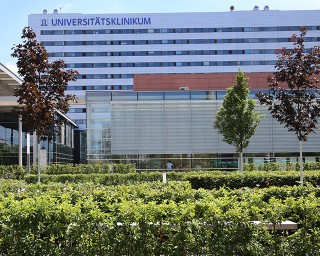
Since April 2024, the Fraunhofer Institute for Experimental Software Engineering IESE has been working together with the University Center for Digital Healthcare (part of University Medicine Frankfurt) on a concept for an IT system that supports the transfer of patients from the intensive care unit to the normal ward. The aim of the project “One Viewpoint for Medical Information in Clinical Contexts” (OneViewMed for short) is to facilitate the work of medical staff with the help of a graphical dashboard and to create interoperability between the IT systems used on different wards. OneViewMed runs until November 2024 and is funded by the Hessian Ministry of Science and Research, Art and Culture (HMWK) as part of the “Digital University Hospital Frankfurt” digitalization project. The first cornerstones of OneViewMed were defined in a joint requirements workshop at the end of May.
more info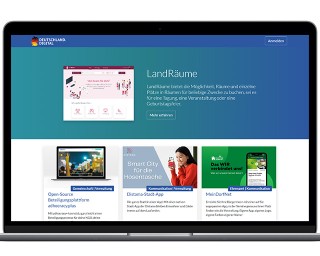
The “DEUTSCHLAND.DIGITAL” marketplace developed by the Fraunhofer Institute for Experimental Software Engineering IESE is part of the new phased plan “Smart Cities and Regions” presented by the Federal Ministry of Housing, Urban Development and Building (BMWSB) in mid-June. This is intended to create a framework for the digitalization of cities and municipalities in Germany and support them in the implementation of digital solutions. The creation of such a step-by-step plan is already anchored in the coalition agreement of the current federal government. “A digital marketplace is a very important element for spreading smart city and smart region solutions across the country,” says Steffen Heß, who is responsible for the Digital Innovation & Smart City research area at Fraunhofer IESE.
more info
The Industry 4.0 Research Advisory Board has elected Rainer Stark (TU Berlin) as deputy spokesperson for science. Peter Liggesmeyer (Fraunhofer IESE) was confirmed as spokesperson for science, Harald Schöning (Software AG) as spokesperson for industry and Klaus Bauer (TRUMPF Werkzeugmaschinen SE + Co. KG) as deputy spokesperson for industry. The team of spokespersons was unanimously elected for three years at the last Research Advisory Board meeting on June 17.
more info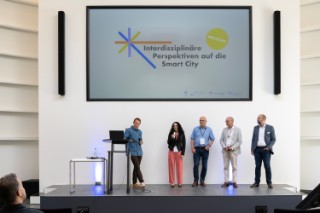
On June 13 and 14, 2024, the first “Interdisciplinary Perspectives on the Smart City” (IPSC) conference took place at Fraunhofer IESE in Kaiserslautern. The event brought together over 100 experts from various scientific disciplines to discuss the latest research findings and developments in the field of smart cities. As the first scientific conference in the German-speaking world to shed light on different perspectives of the smart city and smart region from an interdisciplinary perspective, it set new standards in the scientific community. The partners and organizers of the conference were the Rhineland-Palatinate University of Technology Kaiserslautern-Landau (RPTU), the German Research Center for Artificial Intelligence (DFKI), the Fraunhofer Institute for Experimental Software Engineering IESE and the warmly digital team of the city of Kaiserslautern.
more info
Kaiserslautern, June 11, 2024 – In a unique collaboration, the Fraunhofer Institute for Experimental Software Engineering IESE, the Fraunhofer Institute for Cognitive Systems IKS, and the University of York with the Assuring Autonomy International Programme (AAIP) have developed new safety standards for autonomous systems – with a focus on autonomous driving – in the research project ICON “LOPAAS” (Layers of Protection Architecture for Autonomous Systems). After three years of research, the closing event of the project took place today at Fraunhofer IESE in Kaiserslautern.
more info